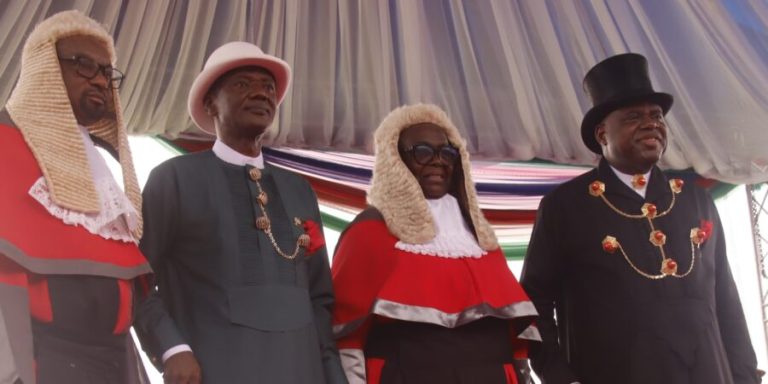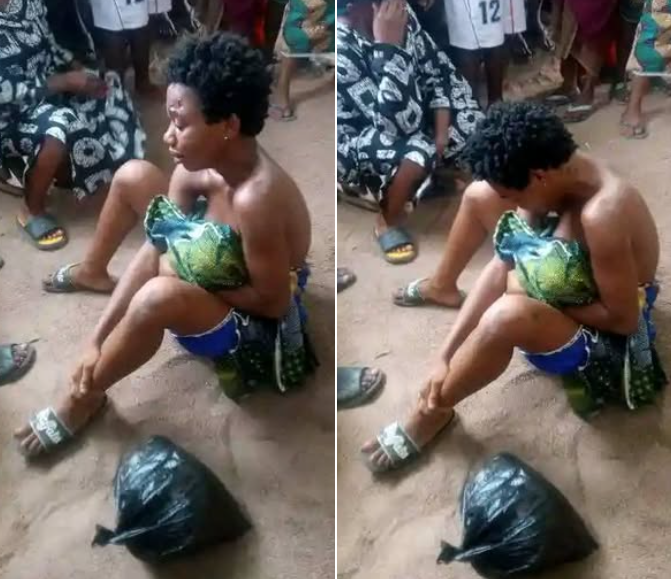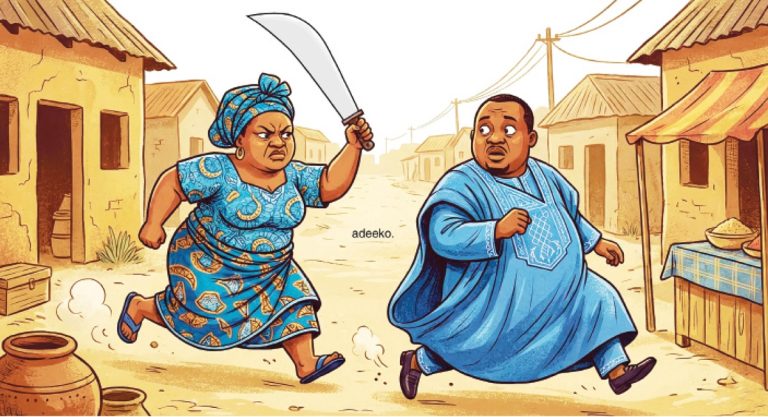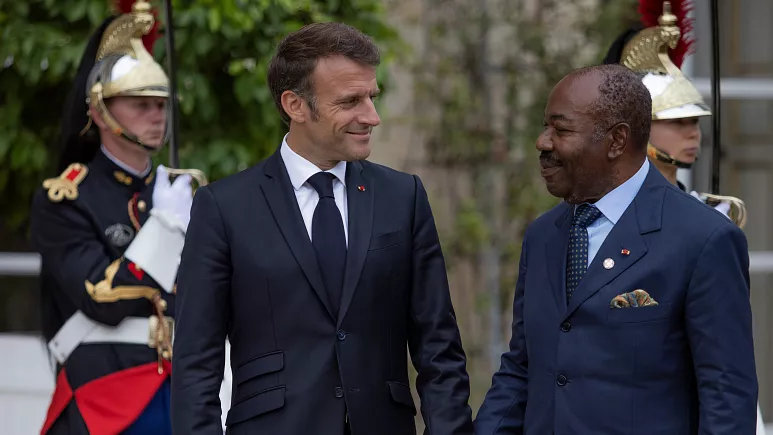
The depth and breadth of France’s influence in its former African colonies makes it anything but a neutral player
French Prime Minister Elisabeth Borne has announced that France is monitoring the coup d’etat underway in Gabon “with the utmost attention”, and her government has condemned the uprising against Paris’s ally, President Ali Bongo.
These statements are hardly surprising, but they come laden with colonial baggage.
Gabon is the second former French colony in Africa to have faced a military coup in as many months, and the sixth in three years – following on from Mali, Chad, Guinea, Burkina Faso, and most recently Niger, whose new installed junta may yet meet with an intervention from the country’s West African neighbours.
In all these cases, the former coloniser has been called to play a role of one kind or another, and the question of its influence in each country has been a major issue.
This is not necessarily how the French government wants to be seen, even as it is perfectly clear who its allies are. On a tour of several Francophone countries this spring, Emmanuel Macron promised that the era of French interference in Africa – sometimes derisively termed “Françafrique” – was over.
“Sometimes I get the feeling that mindsets haven’t moved along as much as we have, when I read, hear and see people ascribing intentions to France that it doesn’t have, that it no longer has,” he said after arriving in Gabon.
“People also still seem to expect France to take positions that it refuses to take, and I take full responsibility for that. In Gabon as elsewhere, France is a neutral interlocutor that speaks to everyone and whose role is not to interfere in domestic political exchanges.”
Many people in Gabon and across the region do not see it this way.
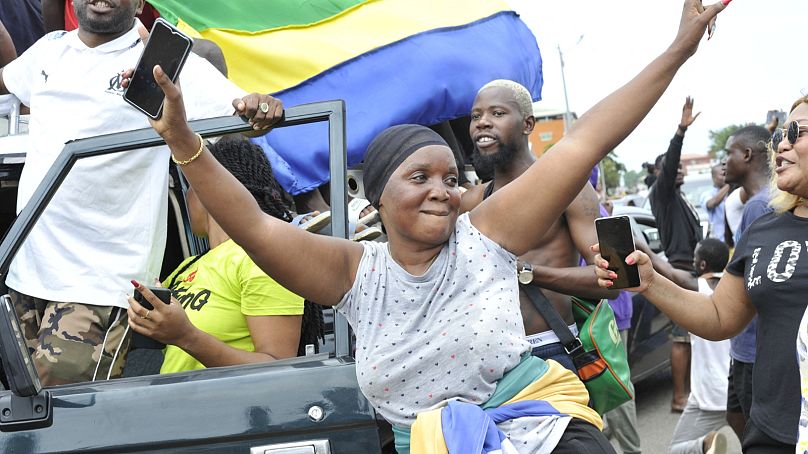
Pulling the strings
France currently has hundreds of troops permanently deployed in Gabon, which like other former French colonies in the region uses the Central African Franc, a currency pegged to the Euro and backed by guarantees from the French treasury.
French mining company Eramet is Gabon’s second-largest private employer; it has announced that given the current unrest, it is suspending its operations.
During Macron’s time in office, as before, France’s military and political influence has been on full display in its former African colonies, including when it comes to easing or averting violent transitions of power.
To take one example, French planes bombed rebels in northeastern Chad for three days in 2019 in support of then-president Idriss Déby, whom Paris had backed in an earlier putsch.
Perhaps the most difficult front of French involvement has been its long military embroilment in Mali, where it led a nearly decade-long military operation to combat a vicious jihadist insurgency.
The operation was wound up in 2022 after the rise of a military junta that France and its allies said had caused “multiple obstructions” to the mission.
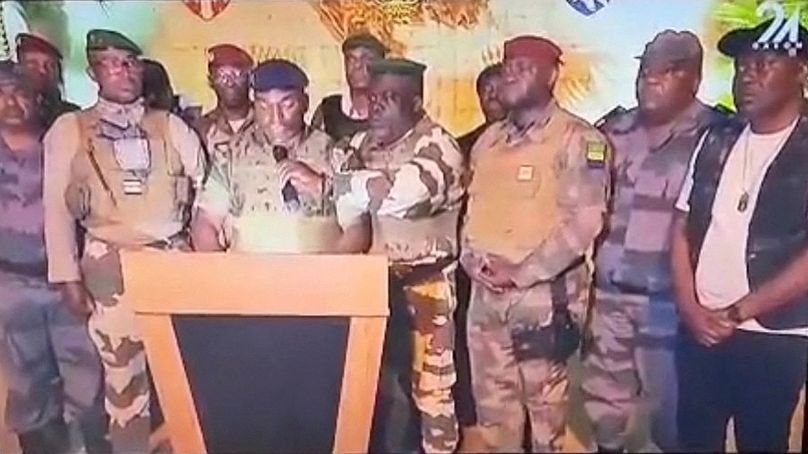
The Russian factor
But there is more at stake for France here than mere self-interest.
As French political scientist Nicolas Tenzer wrote for Euronews, France’s seemingly paradoxical behaviour towards its former African colonies in recent years is to some extent driven by the twin imperatives of pushing back against violent jihadism – especially in Mali – and the influence of Russia.
Russia has been delivering arms to some countries for two decades, he explained, and its notoriously violent mercenaries play an outsized security role in many of these places. The latest Mali crisis, he wrote, was “the latest illustration of Russia’s work in the shadows to pull countries into its sphere of influence, one of the greatest threats that Africa is currently facing.
“While China’s game plan in Africa is centred around the plundering of African resources, Moscow is also focused on countering Western influence on the continent,” he explained.
Russia’s challenge to European influence in Africa is increasingly visible. During the early stages of the recent coup in Niger, Russian flags were seen on the streets of the capital, Niamey, as were posters reading “Down with France, long live Putin!”.
However, as Chatham House’s Alex Vines told Euronews at the time, “It’s not difficult to hand out a few Russian flags. And the display of Russian flags is more an expression of anti-Western, in particular anti-French, sentiment than support for Russia as such.”
But regardless of Russia’s true role in Niger or elsewhere in what critics call “Françafrique”, France is rarely if ever viewed as the “neutral interlocutor” Macron claimed to be just a few months ago. And that’s before the latest in a series of dramatic military coups brought resentment against its ongoing presence to the surface.
And just before the Gabonese election began to give way to military action, the state media watchdog not only cut off internet access in the country but also banned French broadcasters France 24, TV5 Monde and Radio France Internationale.
The signal was that for all Gabon might have been independent for six decades, the French media remains the main source of information for much of its electorate, just as the Elysee Palace remains the most important external player in its politics.

